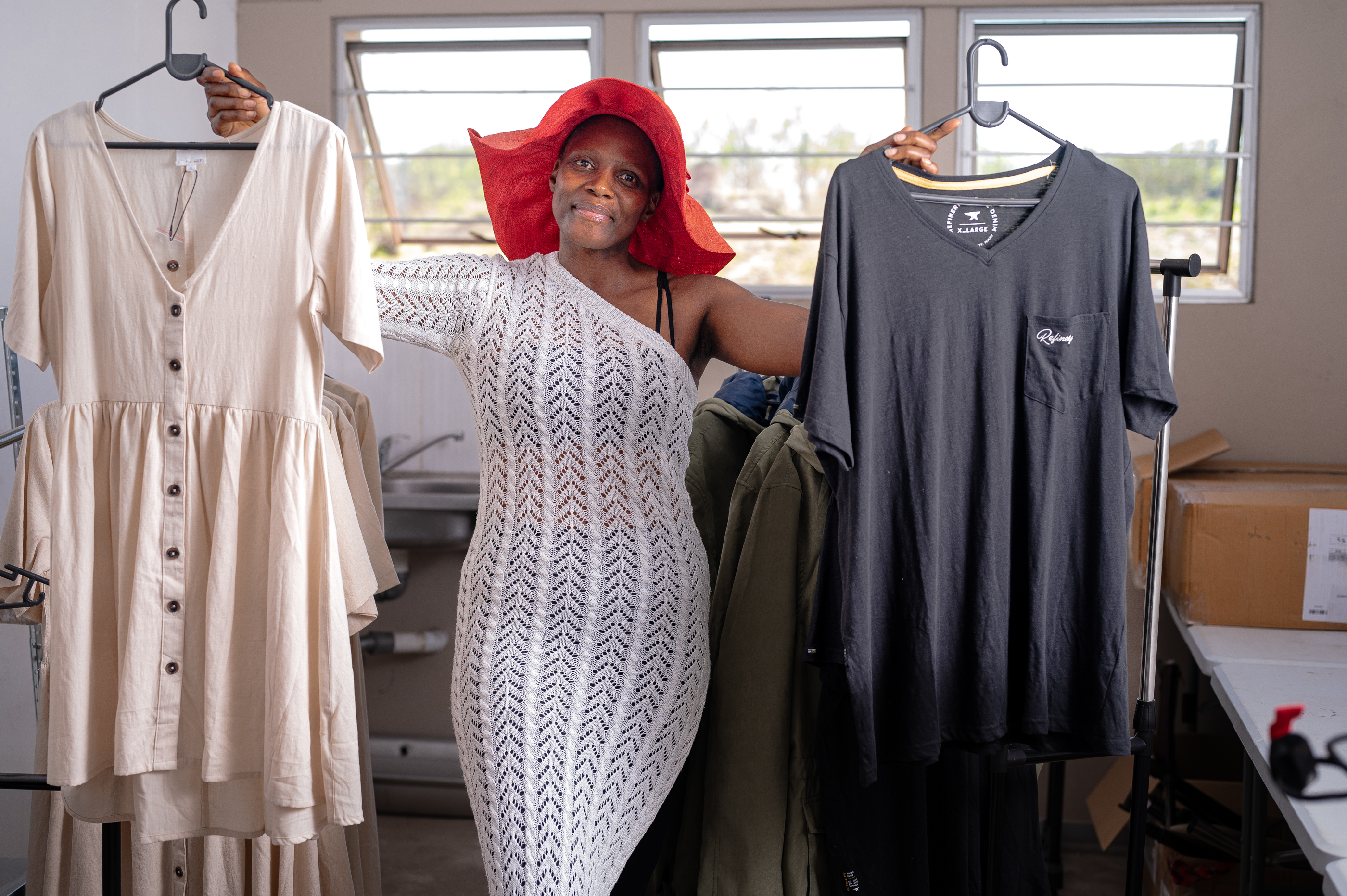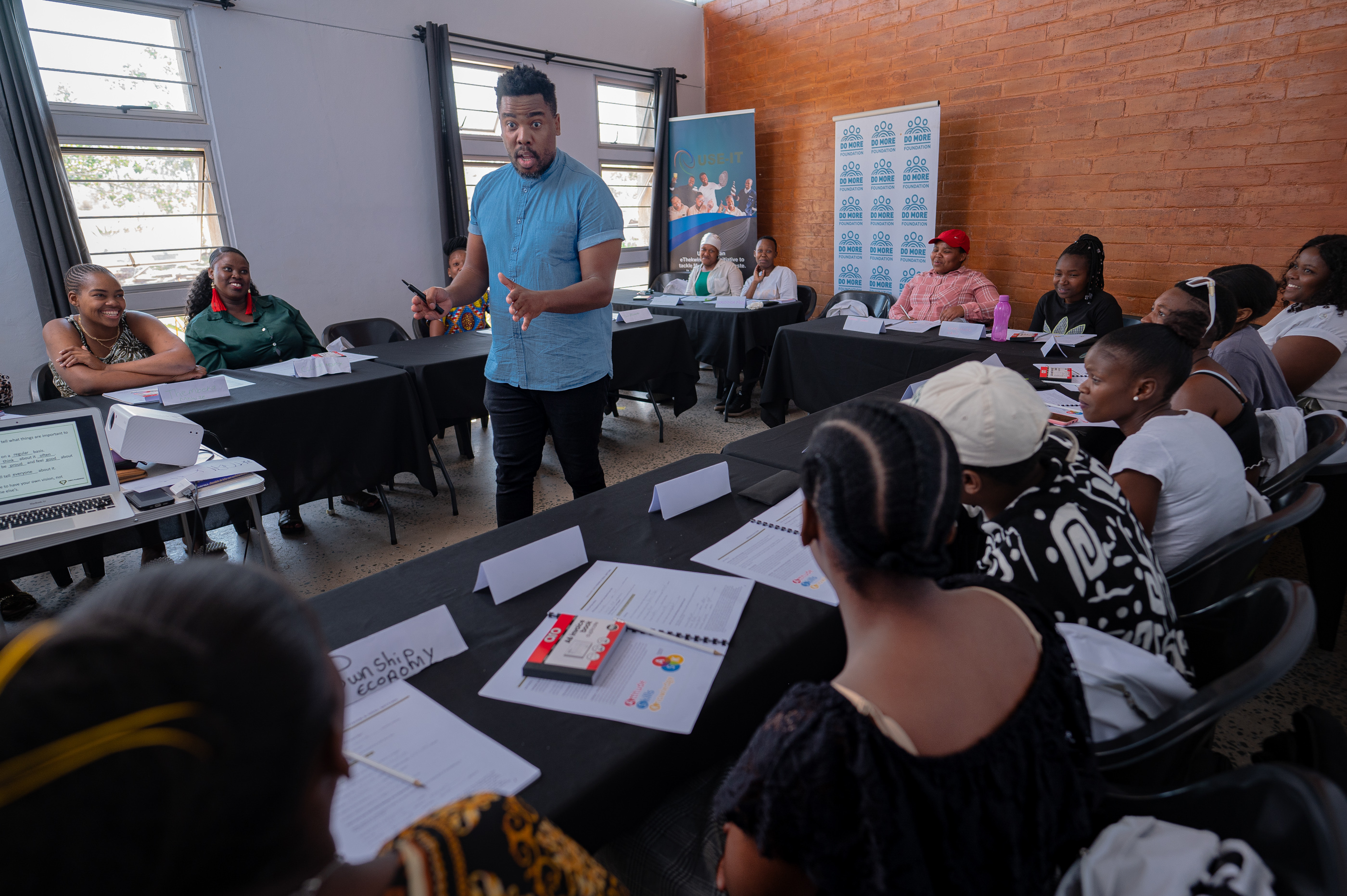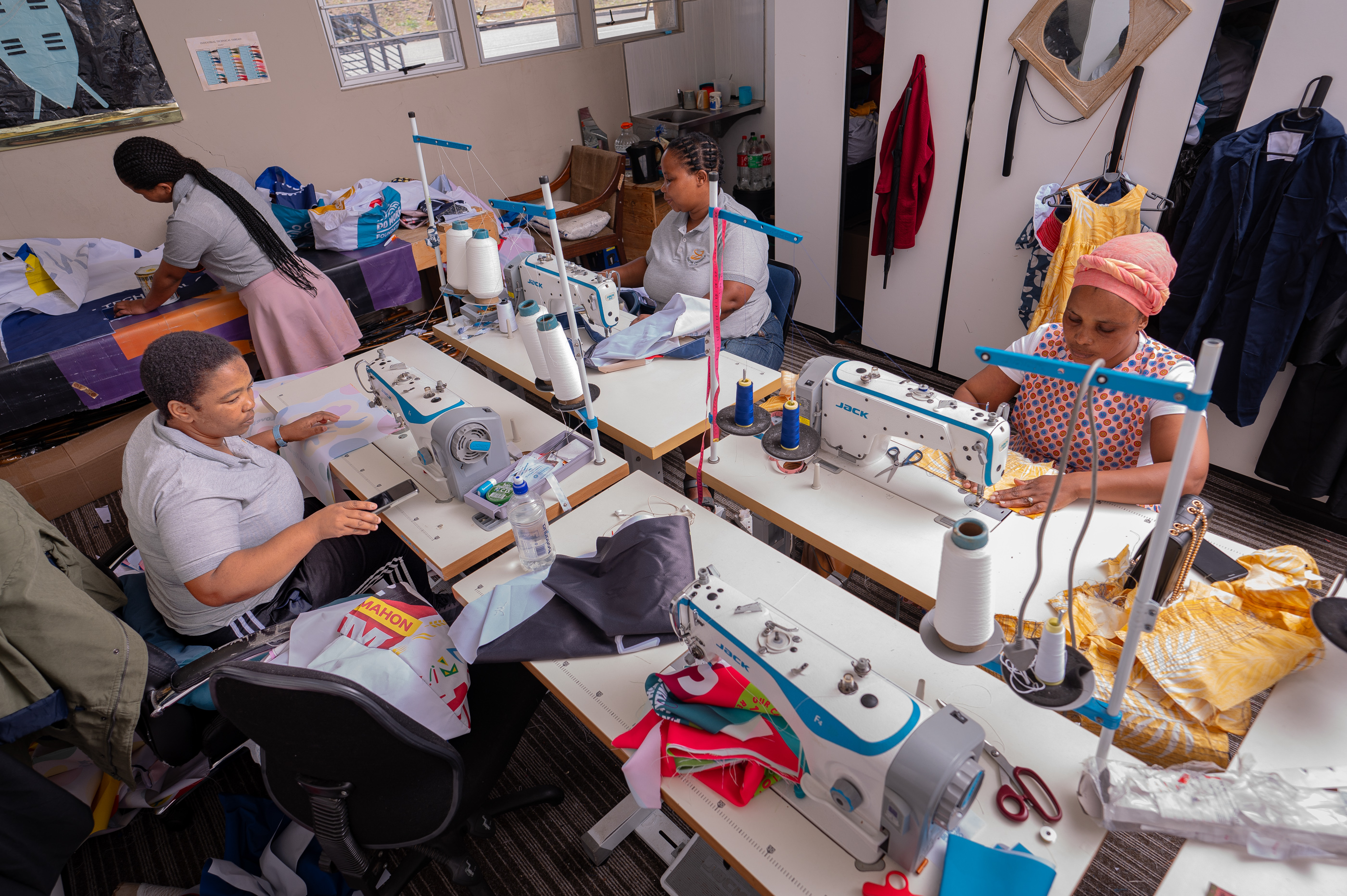Empowering Female Entrepreneurs: Strategies for Success in South Africa's Township Economies
27 Sep 2024
In collaboration with Niya Consulting, we at the DO MORE FOUNDATION launched an ambitious Township Economy Programme in 2019 to empower young women in rural South African communities to become sustainable business owners. Our initiative aimed to equip these women—often the primary breadwinners in their families—with practical skills and business acumen, helping them navigate the challenges of poverty, social obstacles, poor infrastructure, and limited resources. Implementing this programme in areas of Hammarsdale (KZN) and Rustenburg (NW) has provided us with significant insights and posed challenges, offering valuable lessons for businesses and non-profit organizations seeking to replicate such initiatives.

1. Overcoming language and educational barriers in training
One of the earliest and most crucial lessons we learned was the importance of understanding the demographics and educational backgrounds of the communities involved. For instance, in Hammarsdale, our initial training approach was overly theoretical, leading to disengagement among participants. To address this, we adapted the course materials to meet participants where they were, emphasizing practical, hands-on learning. Simplifying business concepts, such as basic accounting and sales recording, was essential to ensure the content was accessible to women with varying levels of formal education, many of whom had not completed matric.
Language barriers also emerged as a significant challenge. While the coursework was delivered in English, we quickly realized the necessity of integrating the local language into explanations and practical examples. By employing bilingual trainers who could incorporate culturally relevant examples, we made the training more relatable and significantly deepened participants' understanding of the material.
2. Addressing social and economic realities
The evolution of our programme was deeply influenced by the harsh realities of the participants' lives, where immediate needs often overshadowed long-term benefits. In the first two years, the dropout rate was alarmingly high. A closer examination revealed that many women could not afford the travel costs to attend training sessions. Faced with the choice between spending their limited resources on transportation or feeding their families, many chose the latter. To address this, we introduced a travel allowance, which nearly doubled attendance rates, highlighting the importance of tackling economic barriers to participation.
Moreover, we recognized that these women were not just entrepreneurs but also individuals grappling with toxic stress, poverty, abusive relationships, and the heavy responsibility of supporting extended families. This realization led us to adopt a more holistic approach, incorporating modules on self-confidence, personal development, and women's empowerment. Our programme aims to equip these women not only with business skills but also with the emotional resilience and social support needed to thrive in their environments.
A practical example of the existing resilience these women possess can be seen in the story of one participant who shared, “My business is next door to a local tavern, and there’s a risk to my safety when leaving my takeaway at night, but I have to make this work. Drunk men like to eat, and this works for my business, but working in a township and locking up late at night means my safety is at risk.” This example highlights how, every day, these women rise above social challenges to make their businesses work. We build on this resilience, helping them navigate and overcome the complex realities they face.
3. Moving from survival to strategy
A constant challenge for us has been shifting candidates’ mindsets from survival to strategic business thinking. Many women had started their businesses out of necessity, often operating in environments where social and economic infrastructures were severely lacking. Introducing one-on-one mentoring during the six-month incubation phase was critical in helping these women apply their learning in real-world contexts. This mentorship provided practical support, allowing participants to navigate their specific business challenges and implement sustainable practices. We learned that flexibility in both the content and delivery of our programme was essential. The Township Economy Programme was designed to be dynamic, evolving based on the needs of participants and feedback from the community. For example, adding an emotional intelligence module helped women present themselves more professionally, enabling them to negotiate deals with larger retailers and partners. This adaptability was crucial to our programme's success, allowing it to remain relevant and effective in the face of changing community needs and challenges.

4. Humility in development: Do not assume you know it all
One of the most significant realizations we've had in community development is that no external organization has all the answers. The real experts are the community members themselves—those who live and work in the area every day. They understand the intricacies of their environment far better than any outsider could.
We’ve learned that approaching the community not as beneficiaries but as partners is essential. Instead of imposing preconceived solutions, successful development work requires listening to the community’s needs and collaborating on solutions. This approach respects the community’s knowledge and leads to more effective, sustainable outcomes.
5. The power of collaboration: you cannot do it alone
A fundamental aspect of our Township Economy Programme is its reliance on a collective impact model. Our programme's success depends on collaboration between multiple stakeholders, including funders, strategic partners, local trainers, community leaders, and the participants themselves. This approach required us to embrace a mindset of partnership rather than ownership, recognizing that development is not a linear process and that honest communication about challenges is essential.
Involving ward councillors has been particularly vital in addressing local challenges. These councillors, often the first point of contact for local issues, possess deep understanding and connections within their communities. Their involvement ensured that our programme not only addressed visible challenges but also considered the underlying issues.
6. The ripple effect, ubuntu and ‘paying it forward’
One of the most powerful elements of our Township Economy Programme has been the use of success stories from previous participants to inspire and motivate new candidates. Women like Zethu, who progressed from the programme to running a corporate canteen, served as tangible examples of what could be achieved. These stories were far more impactful when shared by the women themselves, reinforcing the belief that success was within reach for all participants.
We also emphasized the spirit of Ubuntu, encouraging participants to "pay it forward" by reinvesting their skills and resources back into their communities once they have completed the programme. For example, we have seen participants passing on sewing, woodworking, and gardening skills to local community members and Early Childhood Development centres. The Clothes 4 Purpose programme reinvests 5% of its profits back into the programme to benefit more candidates in the future. These acts of community building reinforced our programme's sustainability and long-term impact.
Conclusion: Empowering female entrepreneurs to build resilient communities
Through our work with the DO MORE FOUNDATION and Niya Consulting's Township Economy Programme, we have developed a powerful approach to empowering female entrepreneurs in South Africa's township economies. By understanding the local context, being flexible in our approach, and fostering strong collaborations, we have not only equipped women with the skills needed to run sustainable businesses but also contributed to the broader goal of building resilient and thriving communities.
Empowering these women goes beyond economic development; it’s about providing them with the tools, support, and confidence to overcome the unique challenges they face and to transform their lives and communities. As we continue this journey, the strategies we’ve developed offer a blueprint for others looking to make a lasting impact in similar contexts. Together, we can help more women rise above adversity and drive meaningful change in their communities.
